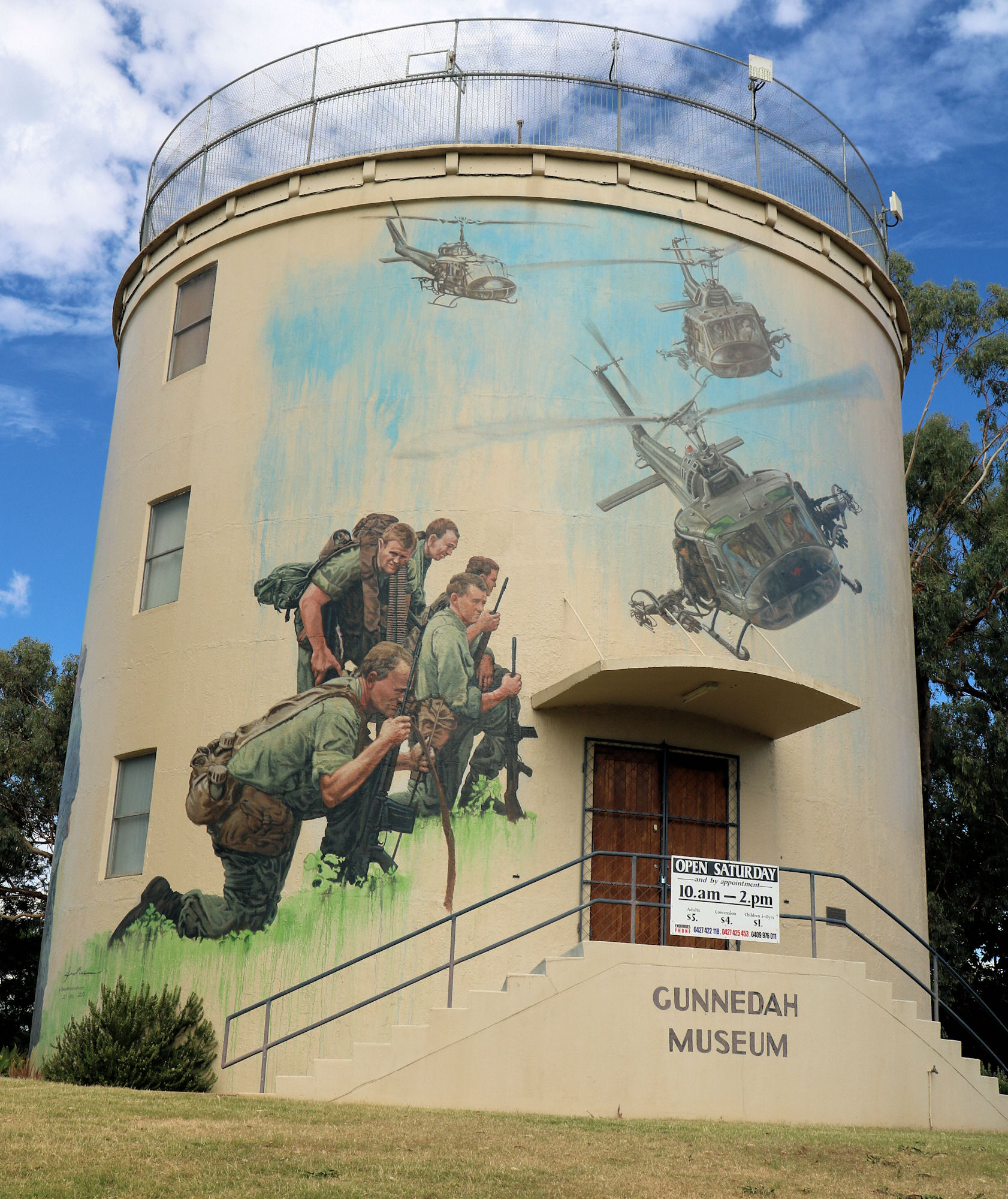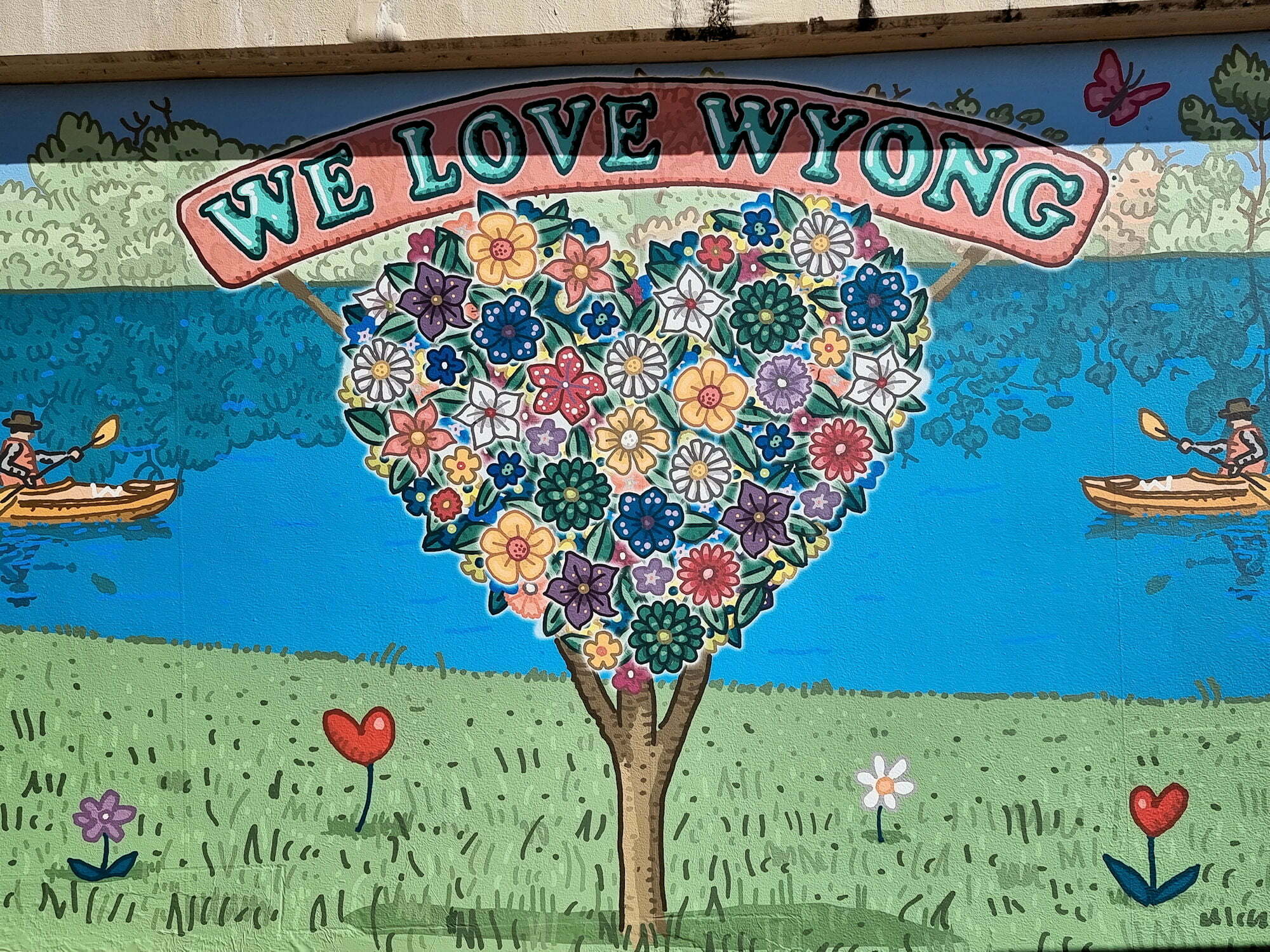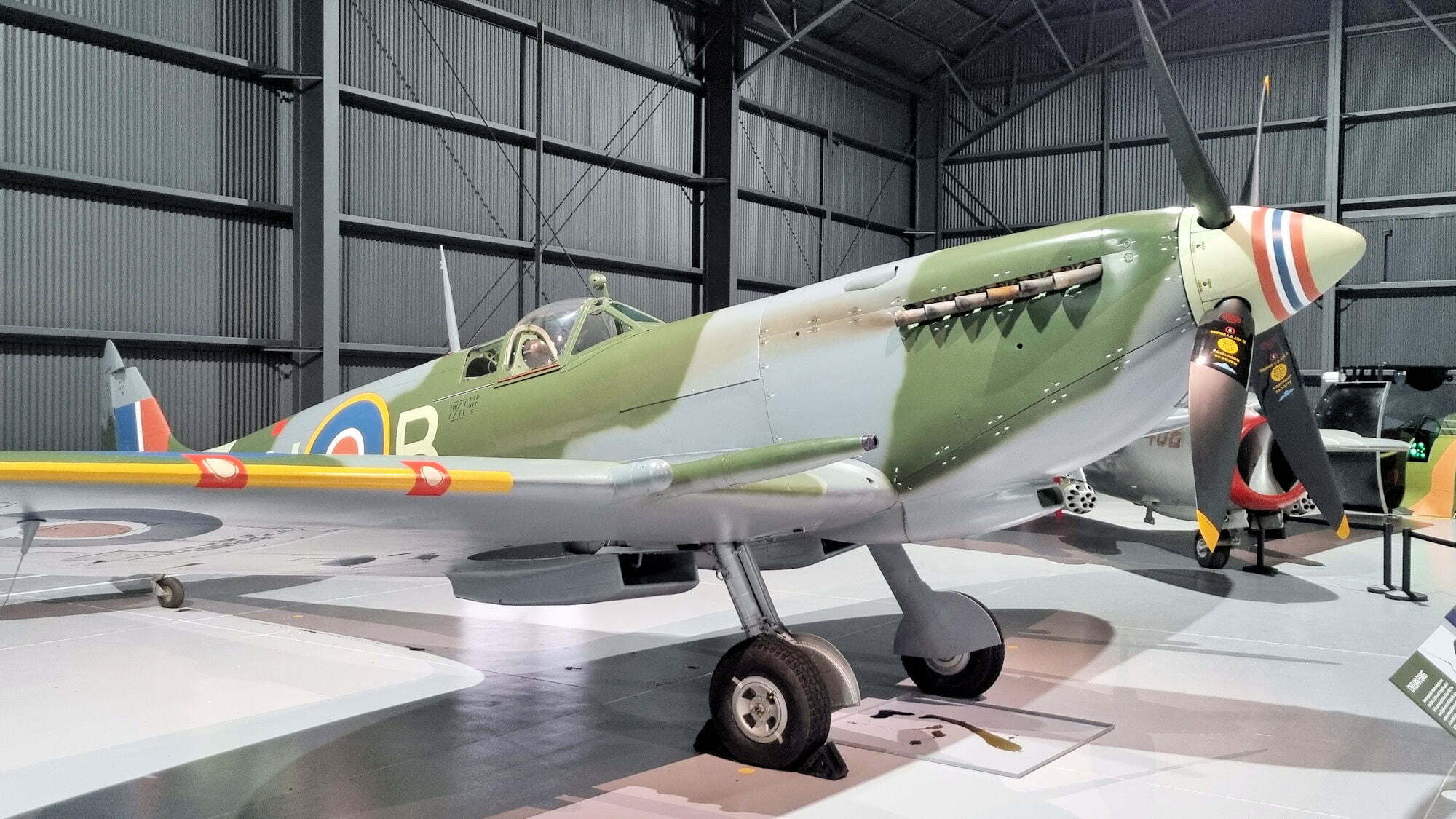Tag: museum
-
Gunnedah Water Tower Museum

Gunnedah Water Tower Museum Located near the Dorothea Mackellar Memorial Statue, the Gunnedah Water Tower Museum is a must see if visiting the area. Parking is easy because of the car park near the memorial, or on the road outside. Only open on Saturday from 10 until 2 you need to time your visit ti… Read more
-
Wyong New South Wales

Wyong New South Wales Australia Located on the New South Wales Central Coast, Wyong is around an hour’s drive north of Sydney, or an hour’s drive south from Newcastle. We visited to see the historic building and street art as well as visiting Alison Homestead on the outskirts of town. Our first stop was the… Read more
-
Hunter Warbirds Aviation Museum

Hunter Warbirds Aviation Museum Located in the Upper Hunter town of Scone, and opened in March 2022, Hunter Warbirds is Australia’s newest aviation museum. Designed to house aircraft and display them to visitors in the best possible way it’s a modern state of the art museum. By car Hunter Warbirds is 300km north of Sydney… Read more